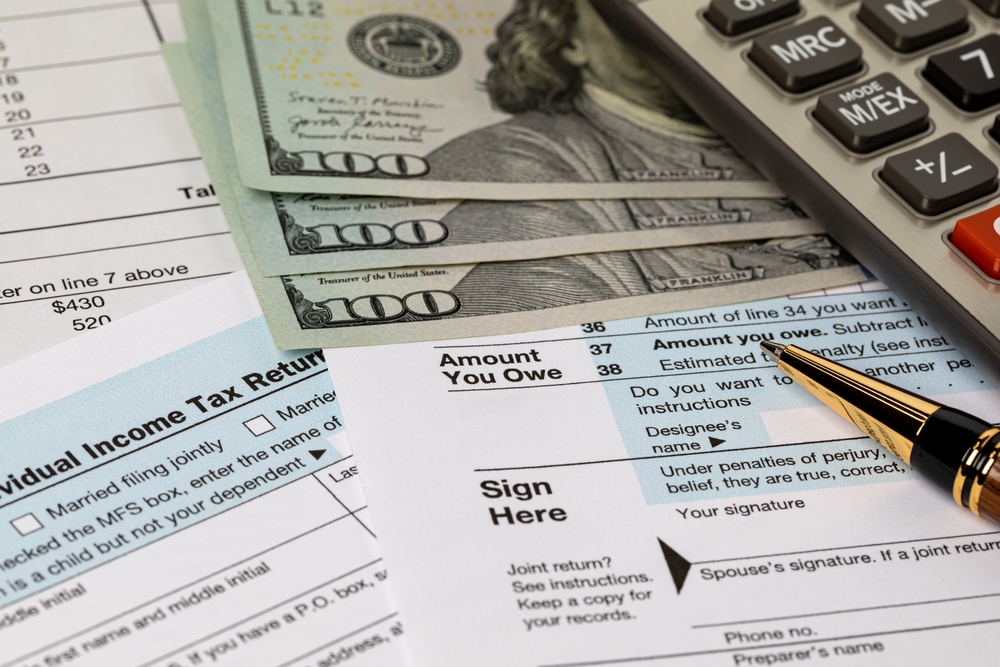
Stop believing these tax myths!
We know that taxes are complicated. They scare many people, but you should still get informed because there are many tax myths out there, and when you are not prepared, this can cost you lots of money.
From misunderstandings about Social Security taxation to incorrect assumptions about side gig income, these myths can lead to unexpected tax bills, penalties, and even missed opportunities for savings.
Even more important, it’s not just high earners who are at risk. Every day, taxpayers just like you, retirees, and freelancers can all fall victim to misinformation, and the IRS is not forgiving. It can be an innocent mistake, but they will tax you no matter what.
The good news? We are here to give you all the right facts that will save you from falling victim to these tax myths. Whether you’re filing your taxes for the first time or you’ve been doing it for decades, staying informed is key to keeping more of your hard-earned money.

Retirement means lower taxes
Once you retire, you might assume that now your tax bills will shrink because the same happened to your paychecks. But this is just one of the tax myths. Actually, depending on your income sources, you could find yourself in a higher tax bracket than expected.
For example, if you have income from more sources such as Social Security, pensions, and retirement account withdrawals, this can make you pay more than you initially calculated.
One of the most common “surprises” people get is when they take large withdrawals from traditional retirement accounts. Maybe you want to convert a traditional IRA to a Roth IRA; this is not a problem, but you will need to pay taxes on the converted amount. This will for sure offer you some tax advantage in the long run, but the taxes you will have to pay upfront might push you into a higher bracket in that year.

Inheritance will always be taxed, no matter what
There are many people out there who are afraid of inheriting money or property because they think that the tax bill that comes with it will destroy their lives. Some of them even rush to sell off valuable assets just because they want to be safe and have money to pay taxes that they don’t actually owe. Well, this is once again one of the tax myths.
In reality, there is no federal inheritance tax. Yep, you heard this right. There is still a federal estate tax, but it’s only applied to estates worth $13.61 million or more. Also, you don’t have to worry because this tax needs to be paid before assets are distributed to heirs. This means that you don’t have to worry about it.
Things can get a little more complicated at the state level because there are only twelve states that impose an estate tax, and only six of them have an actual inheritance tax, according to the Tax Foundation. But even in those states, exemptions and thresholds mean many heirs still won’t owe taxes.

Your entire income is taxed at one rate
This is one of the most common tax myths, and it keeps confusing Americans every year. There are a lot of people who believe that if they are in the 24 percent tax bracket, all of their income is taxed at 24 percent. They think that this applies to all tax brackets, but hopefully, this is not the case. This is not how things work.
The U.S. tax system uses graduated tax rates. This means that your income is distributed in different portions, and each one of them is taxed at different rates.
So, if you earn enough to fall into the 24 percent bracket, it is only the income above the threshold for that bracket that will be taxed at 24 percent. The rest of your income will be taxed in lower brackets. For example, the first portion is taxed at 10 percent, the next portion at 12 percent, then 22 percent, and so on.
Of all tax myths, this is the one that makes some people avoid raises, bonuses, or side gigs, fearing they’ll lose more money to taxes. But earning more will always be a good idea, and taxes will not affect the way you make your money. At least not at all. This is why it is best to always be informed.

No 1099-K? There is no need to report your income
Think you don’t owe taxes on income just because you didn’t get a Form 1099-K? This might bring you trouble! This is another one of the tax myths and is a dangerous one. There are lots of people who believe that since they don’t own an official tax document, this means that the IRS is not concerned about their earnings.
No matter what, you still need to report your income! This applies to money earned from freelancing, selling goods online, rental income, investments, and even gambling winnings. This is money that you are using in this country, and the IRS wants you to pay your taxes for them.
Also, for payment apps like Venmo, PayPal, and Zelle, as well as online marketplaces and payment processors, you need a 1099-K only if you received more than $5,000 in payments for goods or services.
If you made a few hundred dollars selling handmade jewelry or reselling old items, you won’t get a tax form, but this doesn’t mean you don’t have to pay taxes. You still have to pay if you don’t want to get in trouble.

A big tax refund is always better
Getting a hefty tax refund might seem like getting a present, but things are not as good as they seem. This is not a sign that you’ve made great financial choices; it just means that you overpaid your taxes all year long.
To explain it in a simpler way, instead of having that money in your pocket throughout the year, you are basically letting the IRS borrow it for free. So, what’s the smarter move?
You can start by adjusting your tax withholding. Try to keep your money in your paycheck or bank account all year long because this allows you to gain more control over your finances. What can you do with this money? Well, whatever you want. You can invest it, use it for unexpected expenses, or simply enjoy the financial flexibility.

Fill out a tax extension, and you can pay your taxes later
When you start to feel the pressure of the tax day slowly approaching, you might think, Why not file for an extension, right? You think that this approach is perfect and will give you the breathing space that you need, but unfortunately, this is another one of the tax myths you should be careful about.
The extension gives you more time to organize documents, crunch numbers, and avoid a rushed return, but in the end, it does not change the payment deadline; it just changes the filing deadline from 15 April to 15 October.
We know that this sounds confusing, but if you owe money to the IRS, you have to make the payment by April 15, no matter what. Not doing so results in a failure-to-pay penalty of 0.5% of the tax owed per month, up to a maximum of 25%.
Make your tax journey easier today! J.K. Lasser’s Your Income Tax 2025: For Preparing Your 2024 Tax Return
You should also read more about: 8 Common Budgeting Mistakes That Wreck Retirement Dreams
For expert guidance on senior health and finance, visit Centers for Medicare & Medicaid Services (CMS), Social Security Administration (SSA), Consumer Financial Protection Bureau (CFPB) and Administration for Community Living (ACL).
|
Fact-Checked Content
Our editorial team reviews all content for accuracy and updates it regularly. Learn about our editorial process →
|


















